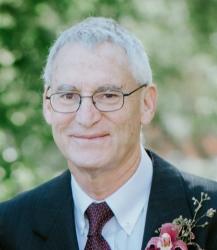We Jewish people are proud when a Jewish athlete succeeds, but a few have gained even more respect for refusing to play ball on the holiest day of the Jewish calendar.
Hank Greenberg, the first Jewish player to be elected to baseball’s Hall of Fame, led the league in home runs four times, drove in an incredible 184 runs in a season, and won two MVP awards in a 13-year career. He hit 58 home runs in 1938 and 331 in his career.
He did not play on Yom Kippur in 1934, 31 years before Sandy Koufax’s more famous decision. Greenberg recalled his 1934 decision.
Hank Greenberg: Both Rosh Hashanah and Yom Kippur came in September … and since we were in the thick of the pennant race, the first for Detroit in many years, it became a national issue whether or not I should play…. The question was put before Detroit’s leading rabbi, Rabbi Leo Franklin. He consulted the Talmud … and announced that I could play on Rosh Hashanah … because that was a happy occasion on which Jews used to play ball in the streets long ago. However, I could not play on Yom Kippur… So I played on Rosh Hashanah and, believe it or not, I hit two home runs.
Many consider Koufax to be the greatest left-handed pitcher in baseball history. His 1963-66 statistics are hard to believe: three Cy Young Awards, an MVP, three strikeout titles, four ERA titles, and 97 wins. The southpaw won four World Series and was elected to the Baseball Hall of Fame.
In 1965, Koufax was scheduled to pitch the first game of the World Series for the Los Angeles Dodgers. But the game fell on Yom Kippur. Koufax refused to play, but, as he pointed out, “There was never any decision to make … because there was never any possibility that I would pitch…. The club knows that I don’t work that day.”

Shawn Green (photo, courtesy of The Score)
Shawn Green regularly hit 35-45 homers and stole 20 or more bases a year playing for the Los Angeles Dodgers, Arizona Diamondbacks, Toronto Blue Jays, and New York Mets. He batted .283 in his 15-year major league career and is one of only 16 players to hit four home runs in a game. In 2002, against the Milwaukee Brewers, he grabbed 19 total bases, which is still an MLB record. He also played and coached for the Israeli national baseball team.
As a Dodger in 2001, Green faced a key weekend series in the September pennant race. Yom Kippur began at sundown on Friday, September 24. On Thursday, Green announced that he would play the Friday night game but sit out on Saturday. Although some rabbis accused Green of trying to have it both ways, Koufax was more understanding. “That kind of call is totally up to Shawn,” he said. “No way anyone can advise you on something like this.”
By sitting out Saturday’s game, Green ended his streak of having played in 415 consecutive games. He said, “I felt like it was the right thing to do…. I didn’t do this to gain approval. I thought it was the right example for Jewish kids, many of whom don’t like to go to synagogue.”
Matt Ceryes, who worked clubhouse security for the Giants and was assigned to the Dodgers clubhouse when they came to town in 2004, has a great story about Shawn Green. Los Angeles, who would win the Western Division, was in the throes of a pennant race. Yom Kippur began at sundown on Friday, September 24, and ended at sundown on Saturday, September 25. Green elected to play on Friday but not in the Saturday 1:05 p.m. contest.
The whiteboard in the visitors’ clubhouse generally contained innocuous messages, like “Batting practice moved up one hour today.” But on Saturday, Ceres saw this message scrawled on the board, perhaps by Manager Jim Tracy or a teammate: “Win this one for the Kippur.”
To play or not to play—what would you do if you were in their place?
______________
A version of this article first appeared in ISSUES: A Messianic Jewish Perspective, Volume 18:5














